Translated by Yusuf Laher
Foreword
In the name of Allah, the Most Beneficent, the Most Merciful, and peace and blessings upon His final Messenger, Muhammad, and upon his Family and Companions.
Hakim al-Umma Mawlana Ashraf ‘Ali Thanawi needs no introduction. He is the author of many books including the famous Behishti Zewar [Heavenly Ornaments] and Bayan al-Qur’an, a Tafsir of the Qur’an in Urdu comprising of three volumes. His books have covered all the various sciences of the din. His sermons, lectures and advices (malfuzat and irshadat) have been transcribed by many.
This booklet [1]Mawlana Yusuf Laher, the translator, has given us permission to publish this booklet on the Internet. Since the text is too lengthy for a single blog post, it will be published on our blog in … Continue reading is a translation of one of those transcripts. The original is in the Urdu language under the name Irashadat/Malfuzat published by Kutb Khana Mazhari in Gulshan-e-Iqbal, Karachi, Pakistan.
Irshad or malfuz means a statement of advice. I have attempted to give each irshad a heading, but do remember there are numerous irshadat (advices) which have much more in them than what the heading states.
May Allah grant one and all the guidance to practice on these advices. May He through His Grace accept this effort and bless us with joy and prosperity in both worlds. Amin.
May Allah fill Hadrat’s grave with nur (light) and grant him a lofty status in the hereafter. Amin.
Sometimes due to certain circumstances it becomes difficult to verbally thank and express gratitude to someone. I hereby take this opportunity to dedicate the thawab (reward) of this translation to my parents who have reared, educated and supported me in comfort and adversity. I can never repay them nor express adequate gratitude for their kindness. It is only Almighty Allah who can adequately repay them on my behalf. May Allah Most High grant them the full reward of this translation. May He also grant them maghfira (forgiveness) and eternal pleasure. Amin.
O reader! I earnestly request you to also constantly remember them in your pious Du’as.
Jazakumullah.
Translator
[Mawlana] Yusuf Laher
Khalifa of ̒Arif Billah Hadrat Mawlana Hakim Akhtar
Hadiths of the Prophet (Allah bless him and give him peace)
1. A person who fulfills a need of a brother, it is as if he has spent his entire life in the service of Allah.
2. There is no greater ̒ibada (form of worship) by Allah than pleasing another Muslim.
3. The most superior act after iman (after accepting iman) is to serve the creation.
4. A person who does not respect the elders and is not kind to the younger ones is not from among us.
5. The greatest cause of (a persons) maghfira (forgiveness) is (presenting to others) a pleasant face and kind words.
6. What you do not prefer for yourself, do not prefer for others.
7. Simplicity is a sign of iman.
8. Everything is beneficial for a mu’min (believer). When goodness reaches him he makes shukr (expresses gratitude unto Allah). When grief reaches him he adopts sabr (patience). Both these qualities are commendable.
9. A mu’min should not remain displeased with his wife. If there is a quality in her that is displeasing, surely there is a quality in her that is pleasing.
10. A person who adopts the middle path (moderation in spending) will not become poverty stricken.
11. Nothing is more harmful to a person than excessive speech (futile speech).
12. First offer to the daughters, then to the sons whatever is purchased from the market place.
13. Someone asked: “What is sin?” The reply given was: “That which the heart dislikes.”
14. When anyone of you has love for a (Muslim) brother, you should inform him that “I have love for you.”
15. O Allah! I admit unto You that if in anger I have said anything uncalled for to any member of my Umma, or if I have cursed anyone, (after all) I am also human. Like other people, I also become angry. You have sent me as a mercy unto the creation. Therefore, transform my curse into a mercy for that person.
16. Who adopts silence has achieved success.
17. The person who is not grateful unto mankind (for their kindness) is also not grateful unto Allah.
18. Actions are judged according to intentions.
19. The best of actions are those which are done in moderation.
20. The person whose good actions pleases him and evil actions displeases him is a true mu’min.
Advices of Hakim al-Umma
[1] Moderation in the Teachings of Islam
The kalam of Allah (Qur’an) is most perfect because the Knowledge of Allah regarding conditions and circumstances is complete. He is the Possessor of choice, has control over everything and the One who makes everything effective. No attribute or condition overpowers Him. Thus, every law coming from Him will be perfect.
Never can His laws be too strict for He is not overpowered by His attribute of Wrath, nor are they absolutely lenient, for He is not overpowered by His attribute of Mercy, but He is the Possessor of choice and is Qahhar (One who has control over things) and is Rahim (merciful) and Karim (generous) when He wishes to be. He is not overpowered or compelled by any attribute.
We learn from this that His kalam (Qur’an) and all His laws are free from extremism. This is exactly why it is compulsory for every human to subjugate himself to the Shari’a. The Shari’a carries within itself all benefits and wisdom.
Experience has proven to us that we become overwhelmed by difficult conditions. This makes it more necessary to follow the Shari’a of Allah so that we can preserve moderation.
Undoubtedly, there is tremendous moderation in the Shari’a.
[2] The Essence of Noble Character
It is clear from the hadiths that the essence of noble character is not to give taklif (not to trouble, annoy, hinder and inconvenience anyone). A hadith states that one should not remove the staff (stick) of a brother lest he becomes annoyed. This should not be done intentionally or in jest. Due to the annoyance caused, such jest is forbidden.
[3] Answer Promptly
To avoid giving an answer when questioned or to delay the answer causing the questioner the inconvenience of waiting is highly disrespectful.
[4] Criterion of Love for Allah and His Messenger (Allah bless him and give him peace)
Irrespective of the amount of love a Muslim has for his children, he will never tolerate disrespect from them regarding Allah and His Messenger (Allah bless him and give him peace). The father will not be so angered with disrespect shown to himself as he would be angered when disrespect is directed to Allah and His Messenger (Allah bless him and give him peace) by his children. Why did the father become so angry if he never had natural love for the Messenger of Allah (Allah bless him and give him peace)? (The anger is proof of his natural love for Allah and His Messenger (Allah bless him and give him peace)).
[5] The Power of Tawba (Repentance)
Even if the whole world is covered in sin, tawba wipes it all out. Dynamite is small in size but can destroy huge mountains.
[6] Courage and Effort (1)
A bondsman (of Allah) should build up courage and make effort, Allah Most High will ensure the persons success. When a father sees his child walking ten steps and falling, then due to mercy and compassion he assists the child and takes him into his lap. Just as the father desires the child to make an effort to walk, in the same way Allah wishes to see our effort. But sad to say, we are not prepared to move from our positions. (We are not prepared to make any effort).
[7] Courage and Effort (2)
Nothing is impossible for a person with courage. Courage is cultivated by staying in the company of a kamil (an experienced spiritual guide) or by communicating with him.
[8] Waiting for Perfect Serenity if Futile
To wait for total settling of the mind (i.e. complete devotion to Allah) is futile. This is not possible while one is caught up in this world (with its responsibilities and duties). To achieve this, even in a troubled and perplexed condition, start the connection with Allah Most High. Gradually such single-minded devotion will follow. Otherwise life will come to an end (waiting) and complete devotion will not be achieved.
[9] The Greater Jihad
There was no other Shaytan that led Shaytan (Iblis) astray. His nafs (carnal desires) led him astray and turned him into Iblis. Overpowering the nafs holds priority over overpowering the kuffar. Thus, striving against the nafs has been referred to as jihad akbar i.e. the greater jihad.
[10] True Contentment
Happiness and contentment in life is not based on wealth, but on the joy of oneself and the soul (spiritual self). Spiritual happiness is based on the relationship with the din and Allah Most High. Thus, a person who has din but little material possessions has a pleasant life. On the other hand, without din the dunya (material possessions) also becomes unpleasant.
If a person possessing wealth is seen to be in happiness then it is either because of the portion of din that he has in him or the observer has been fooled by the external condition of that person. If his internal condition is investigated, nothing but distress and unhappiness will be found. It is also possible the observer is unaware of the reality of genuine happiness. He (the observer) has taken superficial comfort to be true happiness. The secret is that true happiness and contentment is different and the means of happiness is different. (Do not misunderstand the material means and possessions to be actual happiness).
If those material things which people consider to be the means of happiness are not so, then Wallah! In reality they are adhab (punishment). Allah Most High says in the Qur’an:
وَلاَ تُعْجِبْكَ أَمْوَالُهُمْ وَ أَوْلاَدُهُمْ إِنَّمَا يُرِيْدُ اللهُ أَنْ يُّعَذِّبَهُمْ بـِهَا فِى الدُّنْيَا وَ تَزْهَقَ أَنْفُسُهُمْ هُمْ كٰفِرُوْنَ
And do not let their wealth nor their offspring impress you. Allah’s plan is to punish them with these things in this world, and that their souls shall depart while they are disbelievers. (Surah Tawba)
It is not necessary that a person in possession of the material means of comfort be in actual comfort. Also, it does not necessarily mean a person not in possession of these material things is not happy and contented.
It is the way of Allah to deprive a person from comfort who is neglectful towards the din. Neglect towards the din results in the destruction of worldly comfort too.
[11] Committing a sin does not decrease the desire for it
Committing a sin thinking it will decrease (or eliminate) the desire for that sin (in the future) is a deception of Shaytan. Yes, the desire will be decreased temporarily but the faculty and power of committing sin will be strengthened (long term) resulting in the eradication of sin becoming beyond ones power and strength.
[12] Two Virtues of Women
There are two qualities usually more vigorous in women than in men, which makes them (women) worthy of praise and kindness. The first is the ability to serve others and the second is chastity. Although a man may be safe from unchaste actions, it will be extremely rare to find one pure from unchaste thoughts.
On the other hand, if a survey of a hundred noble women is taken, most probably the entire hundred will be such that they never had a single unchaste thought throughout their lives! Allah Most High mentions such women in the Qur’an.
[13] Salat is Compulsory in All Conditions
A sick person repeatedly expressed his ‘utter helplessness’ with regard to the performance of salat (ritual prayer) due to his clothes remaining impure and unclean.
In reply Hadrat [2]Mawlana Ashraf ‘Ali Thanawi (may Allah have mercy on him) said: “It is not a problem. If due to the sickness it becomes too much trouble for the sick person to clean or change his clothes, then his salat will be valid in impure clothes. In whatever condition, the sick person is not excused from the performance of salat. There is great emphasis on its performance. Although there is great emphasis on its performance, (due to conditions) there is also limitless ease and concessions given (to make it easier for the sick person).”
The sick person was still not satisfied and assured by this answer and repeatedly said that how can the salat be valid (in impure clothes)?
Thereafter Hadrat said: “This is the detrimental result of personal opinions. People think that salat in this manner (with impure clothes due to circumstances) will be defective. As it is, the rights of Allah Most High are so vast and overwhelming, our salat can never be perfect. (i.e. we will never be able to fulfill His rights of worship. Our ̒ibada (worship) will never be up to standard in accordance with His rights and status.)
They erroneously think that if the clothes are pure, there is humility and concentration and everything else is in order, the salat is perfect. I say, with all this (above), the rights and greatness of Allah Most High is still not fulfilled. So, if in every condition the salat is imperfect, why is a person not satisfied with performing salat in this condition?” (With impure clothes when forced to do so.)
[14] The Condition for Acceptance of Deed
With ikhlas (sincerity) (i.e. doing something solely for the pleasure of Allah) even a small amount of ̒amal (good deed) is accepted. If there is no thought of ikhlas but the ‘mind is free’, then too will the ̒amal be accepted. The mind being free means there is neither intention of ostentation (or any other ulterior motive) nor the intention of doing it for Allah. (In such a state the deed will be considered to be for Allah.)
[15] A Mansion in Janna in Lieu of a Meager Donation Towards a Masjid
The Messenger of Allah (Allah bless him and give him peace) said that if a person builds a masjid the size of even a nest of the sand grouse (a type of bird), a mansion would be built for that person in janna (paradise). A question arises that; such a small construction (the size of a nest) cannot serve as a masjid. Although the answer to this is that according to all linguists, rhetoric exaggeration beautifies speech; the other answer is as follows: Someone donated one rupee towards the construction of a masjid. The one rupee equals the size of a nest in the entire building. Although this person has not built the entire construction, he will still receive a mansion in janna. So, one paisa (cent) in the path of Allah can suffice for salvation just as thousands of rupees can. (The sand grouse is a relative to the pigeon and is found in desert areas. It makes its nest in the sand without nesting material, but just by a hole gouged by its turning body – Translator)
[16] Means of Chastity
It is mentioned in a hadith if you keep away from the women of others then your womenfolk will also remain chaste and modest. Respect your father and your children will respect you.
From this we learn that, if a person gazes at other women and destroys their chastity, (the result) is the chastity of his womenfolk will be destroyed.
[17] Humility a Treasure
Tawadu’ (humility, to lower and humble oneself) is extremely beneficial and advantageous. Servants of Allah have renounced their kingdoms for the sake of achieving humility. They did not bother with material things. After all, there must be a reason for them giving up the world and giving preference to achieving humility.
[18] Pocket Money for the Wife
One of the rights of the wife is to give her some money, which she can spend at her own free will, which is called ‘pocket money’. The amount (per week, per month) can be stipulated according to their capacity and status, whatever is comfortably possible.
[19] Treat the Womenfolk with Kindness
The hadith instructs us to treat the womenfolk with kindness, for they are like captives unto you. Although the captor has full authority and control over the captive, it would be considered highly unmanly and unbefitting for the captor to ill-treat the captive.
The word ‘awan‘ (Arabic word used in the hadith) also indicates purdah. And the purpose of purdah is modesty, which is a natural quality of a woman. To force someone against a natural quality is a source of inconvenience and harm. The result of inconveniencing someone is the person’s unhappiness. So, keeping the womenfolk in purdah is not oppression. In reality it is a means of their happiness.
[20] The Criterion for Dressing
The criterion for clothes is that the wearer’s attention must not be drawn to it, nor should his gaze linger on the garments he is wearing. If a nawab (a person of wealth and position) wears clothing worth a few hundred rupees, he will not be attracted to it at all. On the other hand, a poverty stricken and common person, on wearing clothes worth just a few rupees will be attracted and become preoccupied with its beauty and designs. So, for the nawab, clothing worth a few hundred rupees is permissible, and for the poverty-stricken person, clothing worth just a few rupees is not permissible.
Also, if a person (who can afford better) wears cheap and low quality clothing, he too will become preoccupied with his clothes by either (continuously) thinking how low and humble he is or by thinking that his nafs (lower self) is so annihilated, he doesn’t care about dignity and honor. This is also preoccupation in thoughts (which should be avoided).
[21] Remedy for Anxiety
Someone wrote a lengthy letter filled with his anxiety and worries regarding his mundane and religious affairs. Hadrat’s reply was: “Entrust all your affairs to Allah Most High. Be pleased with whatever He decrees. This is the best method. If only someone tries it!”
[22] Salat in Accordance with the Sunna
That salat is more beloved unto Allah, which is in accordance with the Sunna, even if it is filled with thousands of stray thoughts, compared to the salat performed contrary to the Sunna. The (obvious) reason is the former has been performed in accordance with the Sunna while in the latter the Sunna has been discarded.
[23] Remedy for Domestic Problems
An excellent way of avoiding domestic problems is that a few families should not stay in one house. The residing of a few women in one house is the major cause of discord and strife.
[24] Avarice the Root of All Evil (1)
Avarice (greed) is the cause of all troubles. It should be termed the ‘root of all (spiritual) diseases’, for, this causes arguments and fights. It is for this very reason that court cases occur. In the absence of greed, no one would suppress the right of another. Greed is also the cause of theft and evil-doing. It is the root of all akhlaq radhila, i.e. debase qualities.
The ̒arifin (saints) say the root of debase qualities is kibr (pride). Pride is the desire (greed) for name and fame. Thus, the purpose and object of pride is ultimately greed.
[25] Avarice the Root of All Evil (2)
A person does not become satiated when the demand of greed is fulfilled. If man has two jungles filled with gold and silver, he will desire a third. This is a wrong assumption that fulfilling its desires will quench the thirst of greed. In fact, the more its desires are fulfilled, the more it will demand. Nothing will fill the ‘stomach of greed’ except sand (the grave).

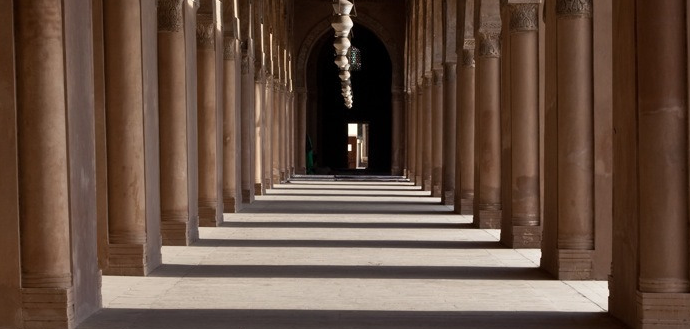
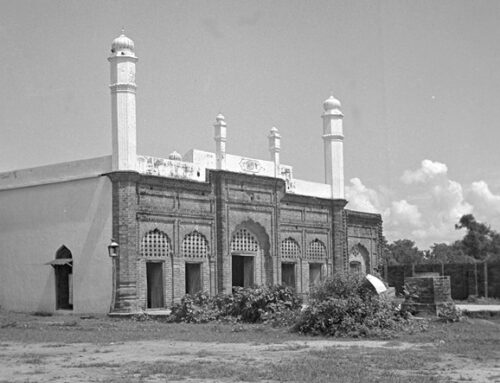
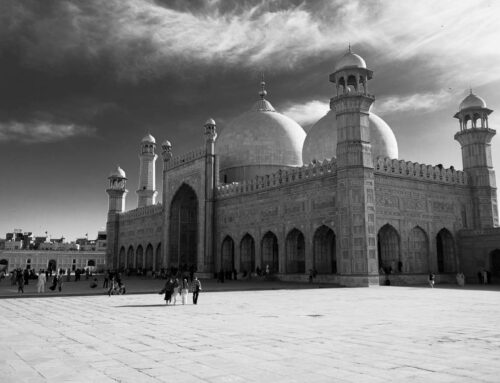
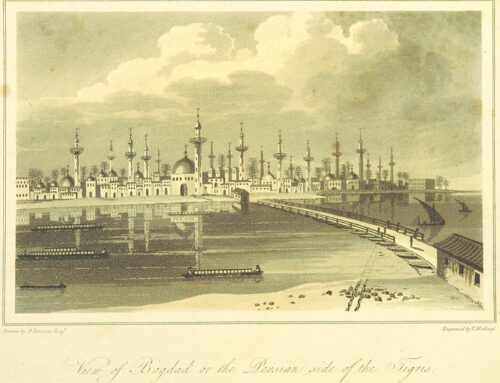
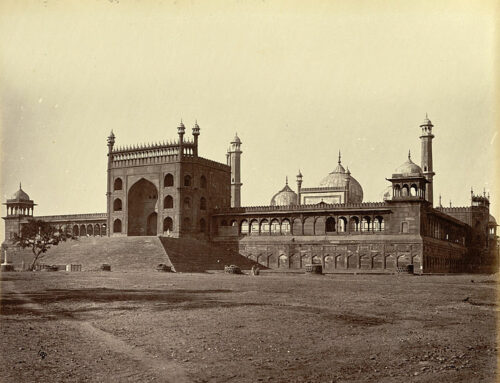
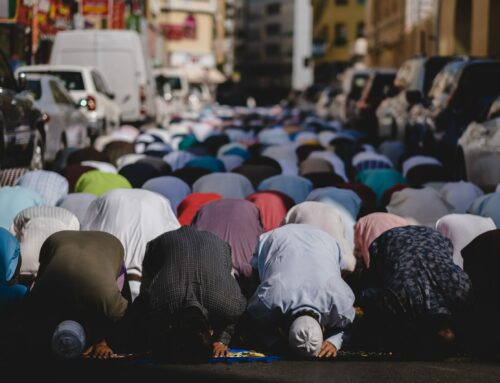
JazakAllah.
As Salamu Alaykum Deoband.org.
Jazak Allah Khairum for this wonderful work, that a laymen like myself can easily comprehend.
May Allah Azzawajal reward all your (Deoband.org) efforts in propogating the Sacred Knowledge of our Akabir.
Assalam wa alaikum
Mashallah this is a very beneficial article. But I have one question regarding the article. I do not wish to contradict I just wish to clear my confusion regarding the 2nd hadith that has been listed.”There is no greater ̒ibada (form of worship) by Allah than pleasing another Muslim.” Isn’t the best form of worship salaah? Jazakallah
Wa alaikumus salaam
Asslaam wa alaikum
reading through this article has enhanced my knowledge and very soothing to the heart and soul.
jazakallah khairan
Ma sha allah, nice article may allah give us the toufeeq to act upon it.